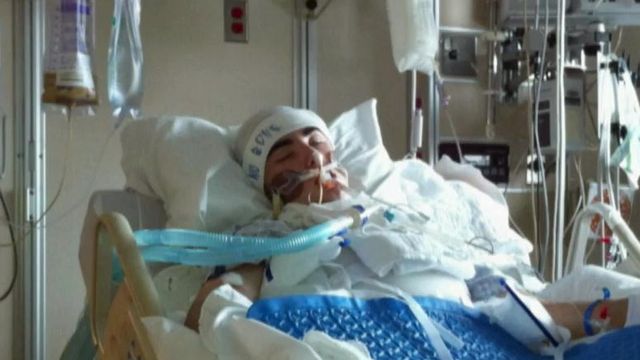Son in coma, mother shocked to find she had little say in his medical care
Imagine your 18-year-old son is critically injured and in a coma. You would be able to step in and make medical decisions for him, right? One mother found out the answer was no. Now, she wants to warn others about her struggle.
Posted — UpdatedRae Stone says her son Forrest had just turned 18 and was still in high school when a snowboarding accident sent him to a hospital in critical condition. He was hooked up to a ventilator in the intensive care unit.
"They took, essentially, the front third of his skull off so that the brain could swell without causing further damage,” said Stone, who lives in The Plains, Va.. “They told us we should prepare for him not to wake up from his coma. I’m like, ‘How do you prepare for that?’”
Legally, Stone’s son was an adult. Under HIPAA, the Health Insurance Portability and Accountability Act, his medical issues were none of his parents’ business, even if he was still on their insurance.
In cases like that, when a child can’t speak for himself, a care provider can make the medical decisions in what is known as “implied consent.” In Stone’s son’s case, doctors were deemed to be his care providers.
As her son lay in a coma, Stone hired an attorney and appeared in court for what she described as a “mini trial” to get legal guardianship to make medical decisions for her son.
Attorney James Vann says if parents want a say, they must have their child's permission in writing.
"A lot of times, we think of this as someone who's getting older, but it really applies to all of us,” he said. “Whether or not a feeding tube is placed in, whether or not to take off life support could be issues.”
To avoid wasting precious time and thousands of dollars in legal fees, parents need to get three forms, which need to be notarized:
Stone was able to get what she needed to move her son to rehab for the next phase of his recovery so he could re-learn how to walk and talk. Now, five years later, her son is still working to rebuild his life.
“Now, he’s able to play the guitar. When, for two years, he wasn’t able to open his hands,” she said.
Stone had a victory party for her son when he graduated high school. He now takes a college class and will need to have more surgeries to close up his skull with prosthetics.
“If Forrest had stayed in a coma … and we hadn't been able to get legal guardianship, then the state would make those decisions, and I can't imagine how terrible that would be,” she said.
• Credits
Copyright 2024 by Capitol Broadcasting Company. All rights reserved. This material may not be published, broadcast, rewritten or redistributed.





